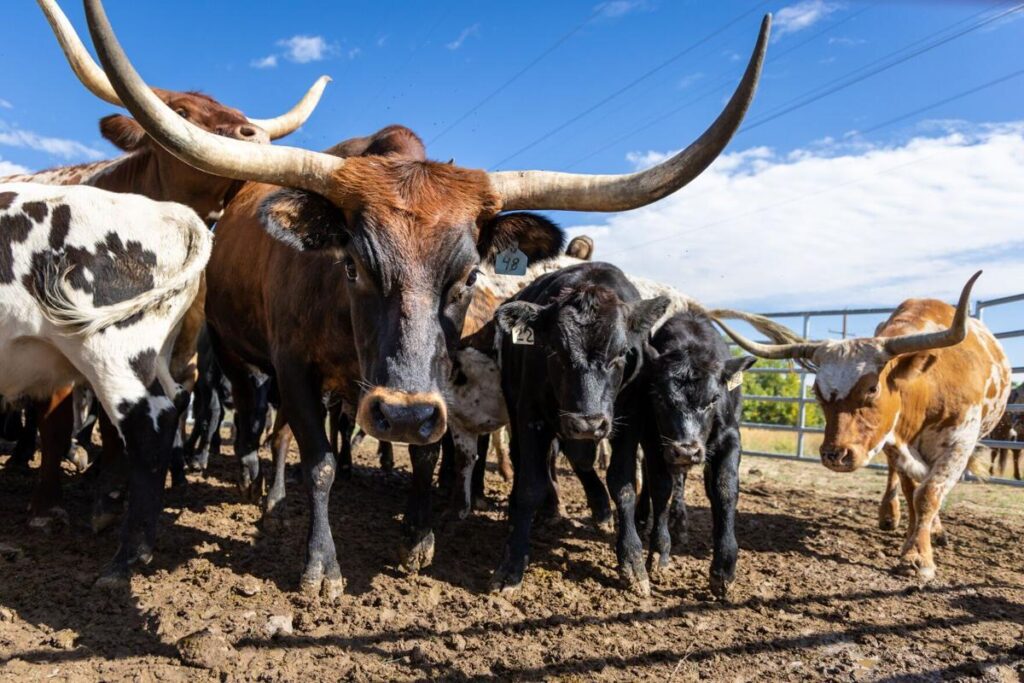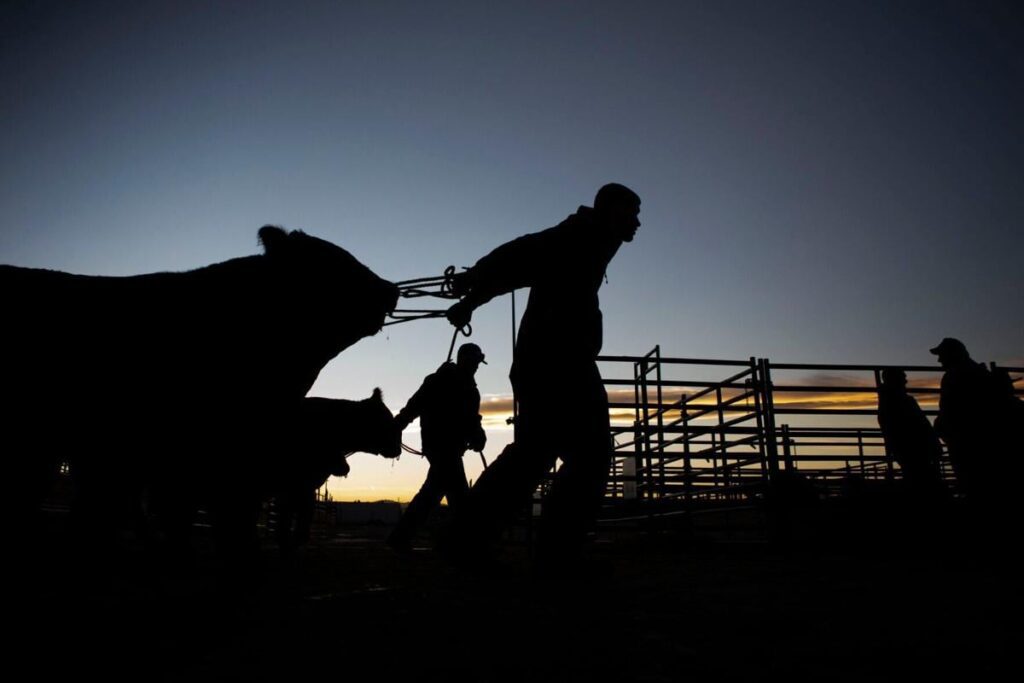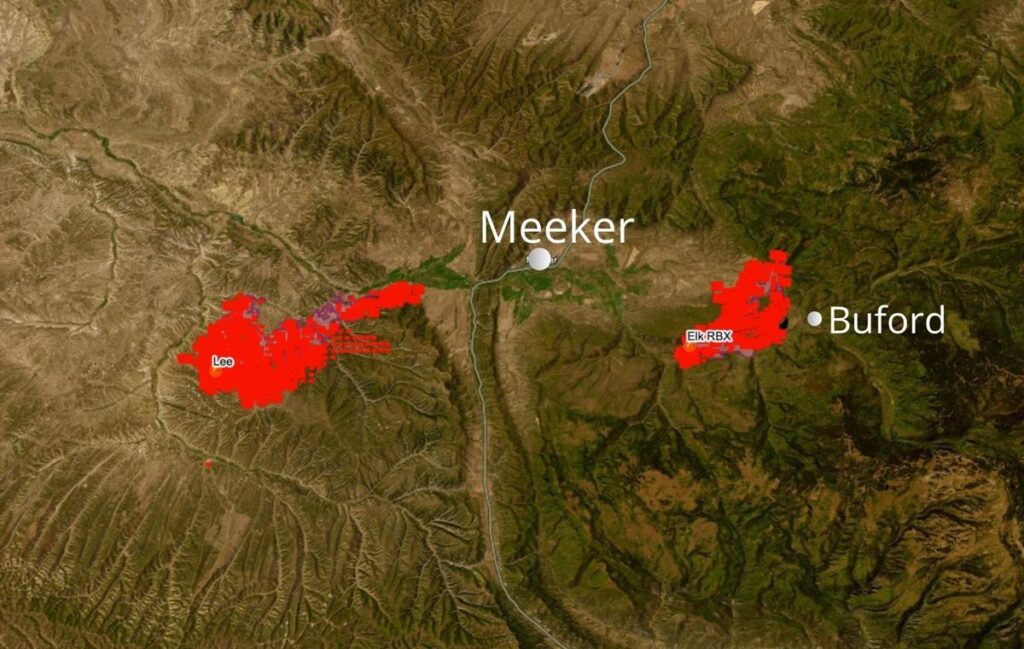Copper Creek wolf pack claims another calf in Pitkin County
The ending to last Friday’s meeting of the Colorado Parks and Wildlife Commission came with news of yet another wolf killing.
Commissioner Tai Jacober, a rancher in Pitkin County, spoke up near the end of the meeting.
“There was a depredation at Capitol Creek just now,” Jacober said. Capitol Creek is in Pitkin County, where wolves have killed or injured at least eight livestock since March 3.
“Sigh. That’s all I can say,” responded commissioner Chair Richard Reading.
On July 18, a reporter from the Coloradoan newspaper was interviewing a rancher, Brad Day, who leases land at the McCabe Ranch, when an independent range rider hired by ranchers informed him he had found a dead calf.
The Coloradoan reported that Colorado Parks and Wildlife confirmed the depredation — and that it was caused by a wolf from the Copper Creek pack.
Those wolves were brought to Pitkin County in January in violation — critics said — of the state wolf reintroduction plan, which says animals that have a history of killing livestock should not be relocated to Colorado.
The Copper Creek pack had originally been placed in Grand County, but with dozens of livestock killed there, much of it attributed to the male and female mating pair of the pack, the state wildlife agency captured the wolves and four pups and placed them in a sanctuary for several months.
Wildlife officials then re-released them — in Pitkin County.
Seven of the eight depredations in Pitkin County are believed to be from the Copper Creek pack. Wildlife staffers killed one of the yearling wolves in hopes that it would change the pack’s behavior. That was at the end of May.
The last item on the commission’s agenda on Friday had been a public comment period, with some congratulating the body for authorizing the payment of claims to ranchers in Grand and Routt counties for missing cattle.
Others blasted the commission for wasting taxpayer money on claims that they said could not be proven.
Meanwhile, rancher Conway Farrell of Grand County had noted that all 10 wolves from Oregon, dropped into Grand County at the end of 2023, had been through his land. Farrell lost more than a half million dollars from dead or injured livestock, although the final claim of just over $100,000 wasn’t settled until July 17, based on a vote by the commissioners.
Ranchers have claimed more livestock have gone missing or have been killed, although not confirmed by Colorado Parks and Wildlife, and that the wolves continue to attack their livestock.
Kathleen Curry, who represents Gunnison County Stockgrowers, reminded the commission during the public comment period Friday that the Holy Cross Cattlemen’s Association has applied for a chronic depredation permit to deal with the wolf depredations in Pitkin County.
Curry noted the last time such a permit was sought, it was requested by the Middle Park Stockgrowers in Grand County. That request was turned down, and two days later, there was a major depredation event in Middle Park.
“We would like to avoid that outcome,” Curry said.
Elise Collins, a rancher in Pitkin County whose ranch is adjacent to the McCabe Ranch, said she was out walking one day, several weeks after the wolves were released in Pitkin County, when she watched as a bull elk came charging through the property, leaping over a fence, and not far behind were five coyotes.
Or so she thought.
As they got closer, she realized they weren’t coyotes. They were gray wolves and bearing down on her, putting her between the wolves and their prey.
“It was terrifying and I had nowhere to find shelter or defend myself. Nonetheless, we producers cannot rightfully defend ourselves,” Collins said.
“We need the support and acknowledgement of the state to deal with this apex predator. We are your constituents and you can choose to work with us or we will circle the wagons and be a stronger force to be reckoned with,” she said.
Another person commented that ranchers are being held to a standard that even state agencies aren’t around carcass management.
Brittany Dixon, executive director of Club 20, told the commission the wolf reintroduction has “fractured trust,” calling the program’s rollout rushed and poorly communicated.
Producers are left without timely warnings when wolves are near, and the result is preventable losses, delayed mitigation and growing resentment, she said.
On carcass management, Dixon said many rural communities do not have access to functioning landfills, although producers are held to disposal standards that even state agencies don’t follow.
Club 20 advocates for a pause on wolf releases until the “foundational pieces” — communication, carcass management and compensation — are not just written policy but actually working on the ground, she said.
“Rural Colorado cannot continue to bear the brunt of a broken rollout,” Dixon said.
A different solution came from Glenn Parton, an environmentalist who posts a blog on the website of The Rewilding Institute, which advocates for returning grazing land to natural prairie.
His proposal — get rid of ranches.
The only real way to solve the wolf-livestock conflict is for the federal government to buy out ranches and private property holdings in the most remote regions of the Rocky Mountains so that wolves can live in peace, Parton said.
“The federal buyout should be voluntary to begin with, based on fair market prices,” he told the commission, and for those “unwilling to act in the common good,” the federal government should use the right of eminent domain.
Parton said all public lands should be designated wilderness, terminating all grazing and commercial uses.
“This is the only way to solve the biodiversity crisis, especially for apex predators, such as the wolf,” he said.











